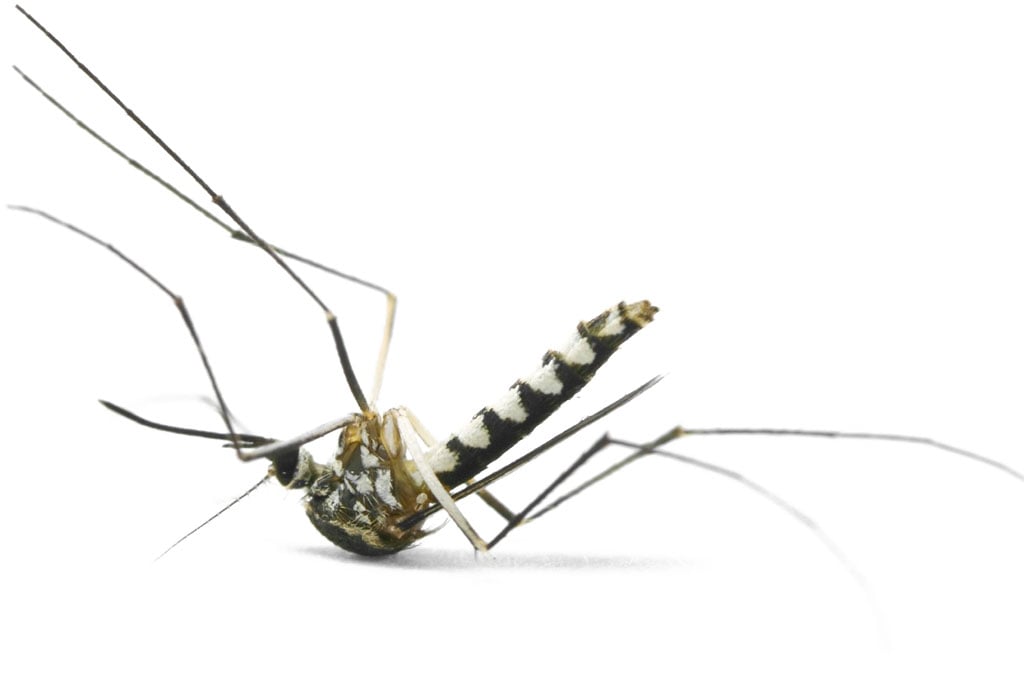Prime
Natural ways to get rid of mosquitoes from your home

A mosquito. PHOTO/COURTESY
What you need to know:
- Mosquitoes act as carriers for several vector-borne diseases such as dengue, malaria, and yellow fever.
The rains are here finally. While we celebrate the great things the rainy season brings, we cannot ignore the floods, diseases and the dreaded mosquitoes that come with it. Whereas some homes get to feel the bite of the mosquito only during the rainy season, others such as Amber Mbabazi experience them all- year-round.
When Mbabazi first moved into her home, she realised that the full grown trees, colourful shrubs and beautiful flowers came at a high cost; mosquito infestation.
Mosquitoes act as carriers for several vector-borne diseases such as dengue, malaria, and yellow fever. They were also known to be carriers during the Zika virus outbreak.
“I was always in and out of hospital and even had to start on early vaccinations for yellow fever because of the mosquitoes in and around our home. It was so frustrating that had this not been my dream home, I would have moved out immediately. But, I chose to stay and look for long-term solutions,” she shares.
During her search, she discovered Prof Bioresearch, a local firm that provides bioresearch products and solutions that are community-oriented. She was introduced to oil extracts and mosquito repelling plants that were effective in eliminating mosquitoes and other insects.
Oil extracts
Gloria Nakitende from Prof Bioresearch, says oil extracts from plants such as lemon, eucalyptus, Citronella and Geranium are not just healthy but they also repel mosquitoes.
Peppermint oil, she says has a cooling effect on one’s skin in case of an insect bite and also repels mosquitoes. The oils or creams can be applied to the skin to repel mosquitoes.
“They can also be added to candles or used in electric scent burners. They not only repel mosquitoes but their fresh scent purifies the air and has a calming effect on the house occupants,” she explains.
These oils, she adds can also be used to create mosquito sprays. However, Nakitende discourages sprays as they might have some other ingredients that are not purely organic and might be harmful, especially to young children and people with allergies.
Paints
Mosquito-repellent paints are being touted as one of the effective methods of repelling mosquitoes on addition to the conventionally used methods. They anti-mosquito paints currently available in the market are generally found to be effective for about two to three years after their application.
These paints are water-based and they contain microencapsulated synthetic pyrethroid insecticide, which disables the mosquito’s nervous system, preventing it from biting humans.
According to Kulthum Hamulcauaya, from Plascon paints, their anti-mosquito paint is an acrylic emulsion paint that can be used on the interior and exterior walls to kill mosquitoes.
The paint that is easily cleaned with water is applied by brush or spray together with white spirit and only requires a firm hand on the brush and thorough stirring for easy applicability. She adds that the paint is eco-friendly and also comes in a range of cool exterior hues such as Archie texture and Eggshell Enamel.
Water systems
Nakitende recommends eliminating all spots that can be used as breeding areas for mosquitoes.
“Every effort should first be made to prevent mosquito breeding through physical control activities eliminating breeding areas by thoroughly cleaning up your compound. Remove every clutter such as old tires or tins which mosquitoes can turn into breeding areas. Cover all the manholes and if necessary and approved by a professional pour oil over stagnant water in the compound to kill the larvae,”Nakitende advises.
Plants
Plants and herbs such as Citronella grass, marigold, rosemary, basil, lavender, lemon balm, and lemongrass are effective in repelling mosquitoes. Most of the insect repellants are herbs that serve other health benefits.
For example, lemongrass has antibacterial and antifungal properties that help the body cope with coughs, fever and other cold and flu symptoms as it is loaded with Vitamin C that boosts the immune system to fight the infection.
• It has antiseptic compounds that effectively kill bad bacteria and parasites in the digestive tract.
• Helps to clean and detoxify uric acid and cholesterol from the body.
• It also helps to purify the liver, kidneys, bladder and pancreas
• It helps in strengthening the skin tissues and toning up the pores while also sterilising them.
• Lemon grass also works as antiseptic for internal and external wounds.





